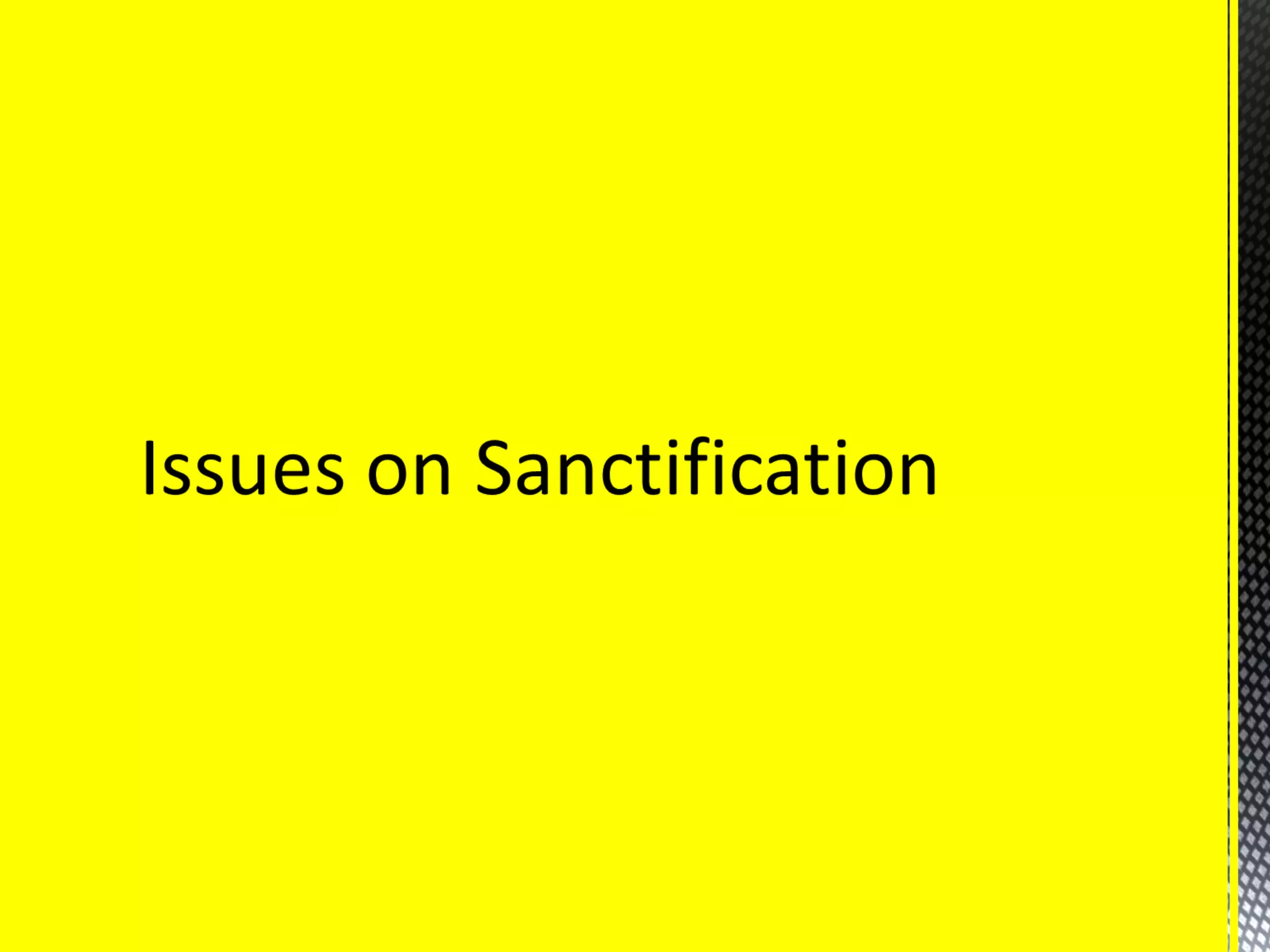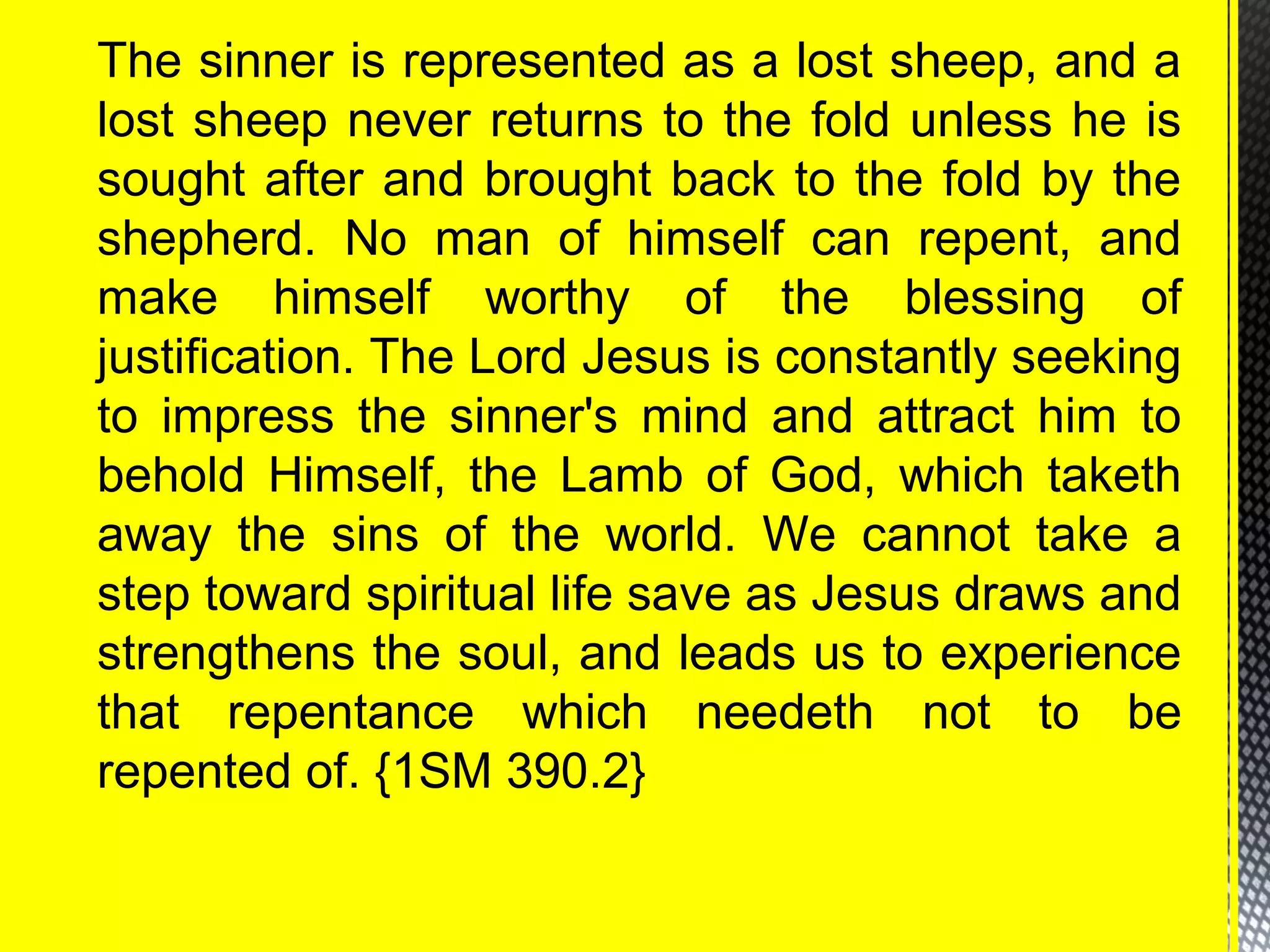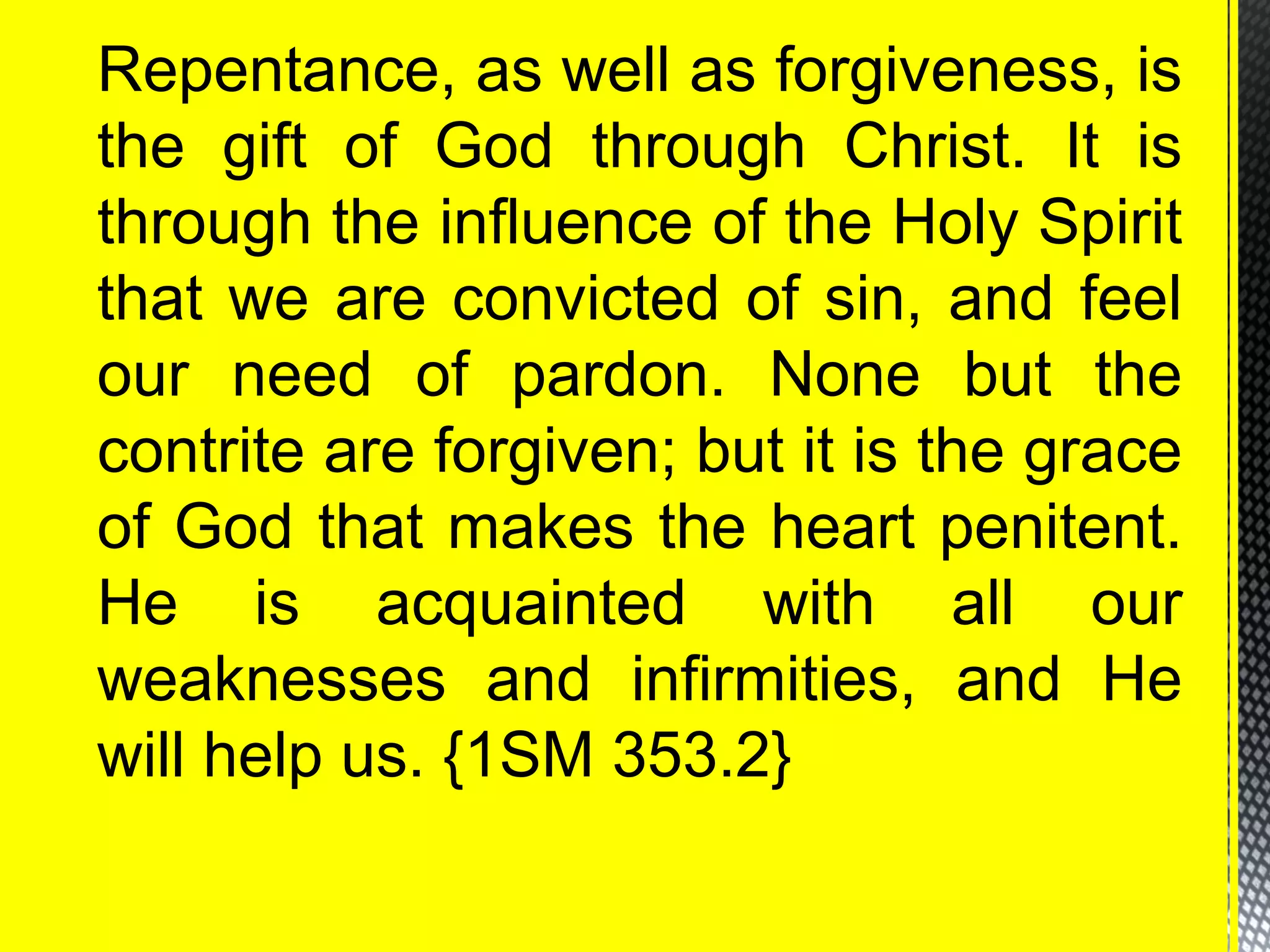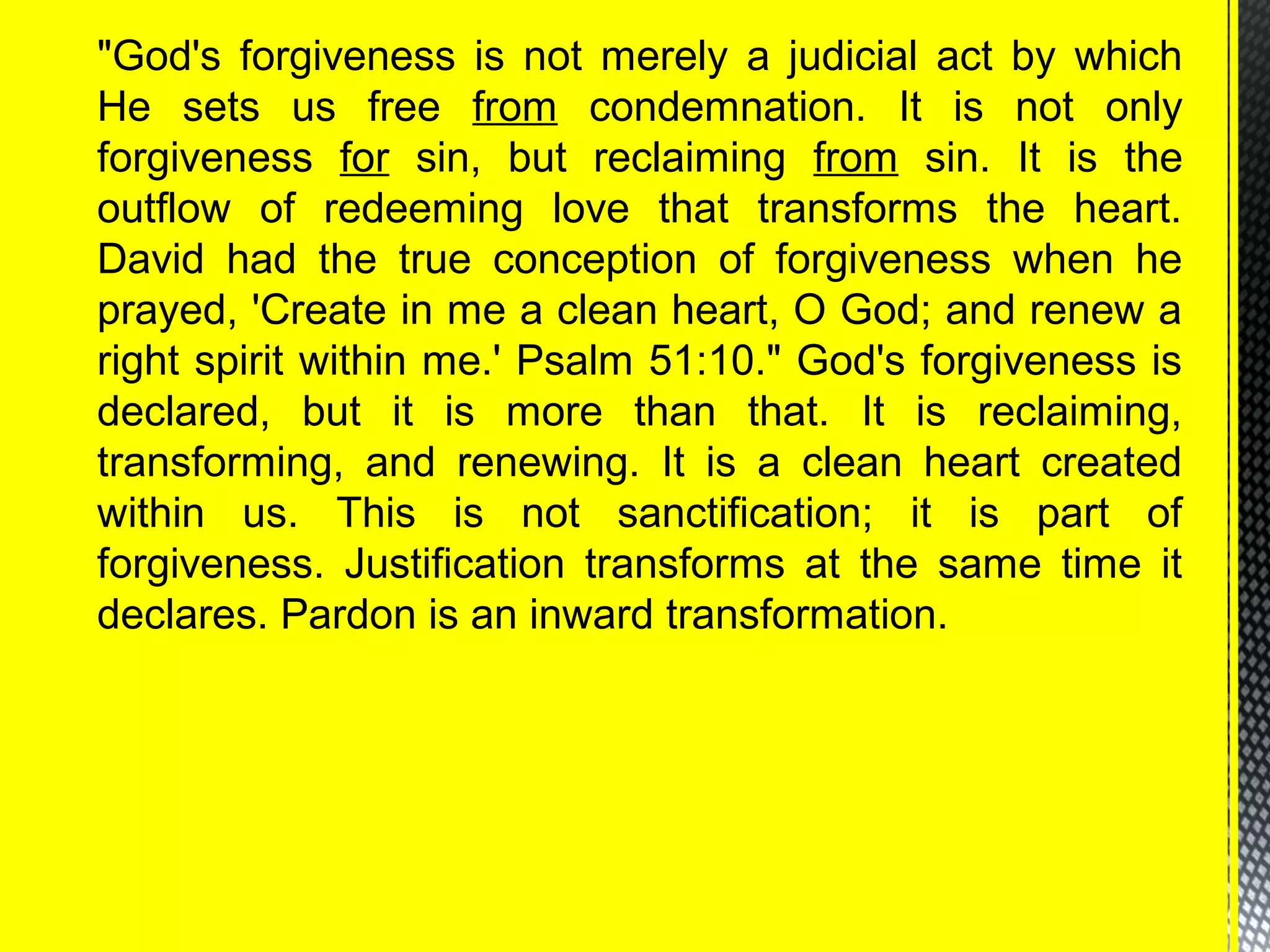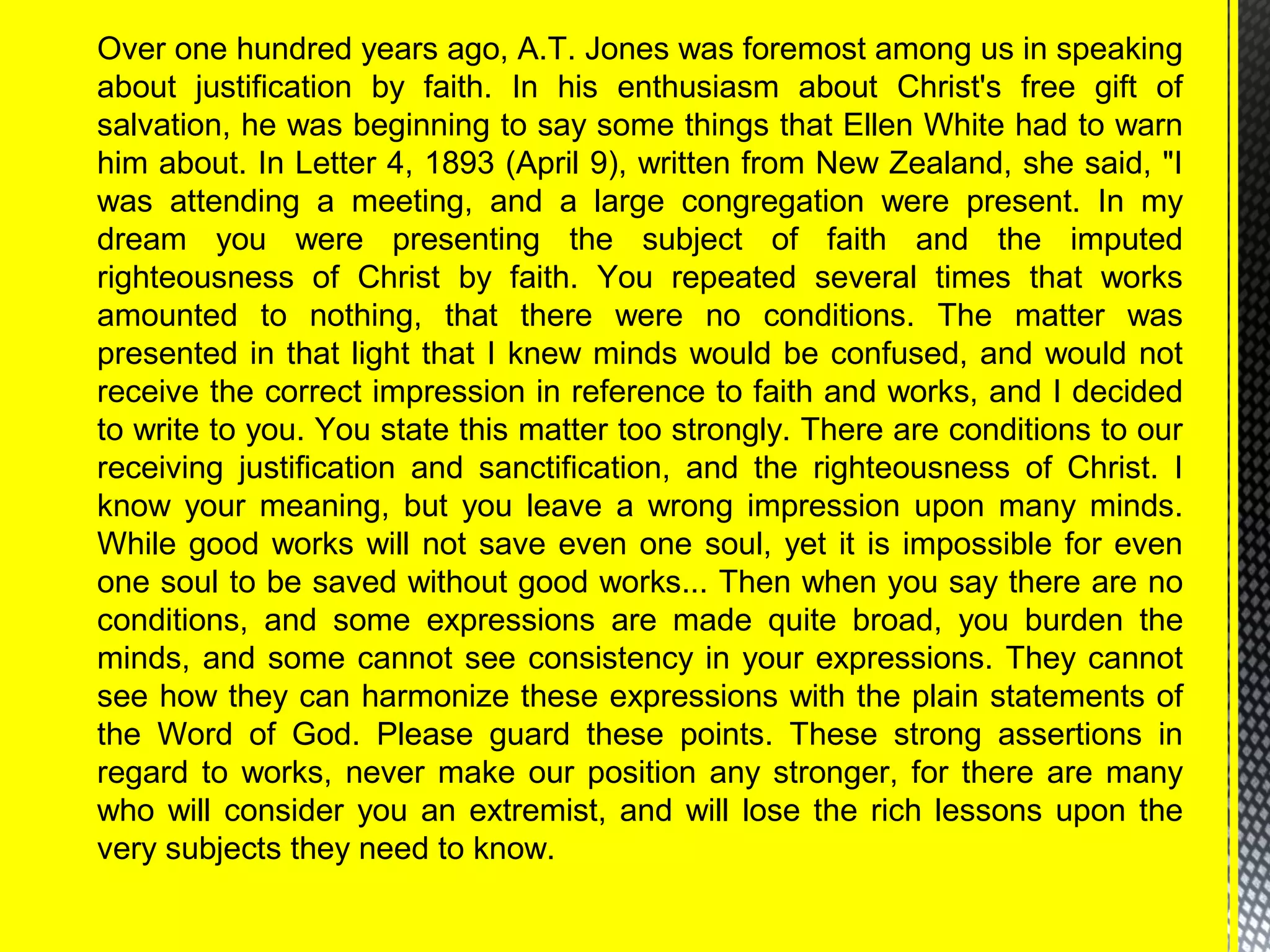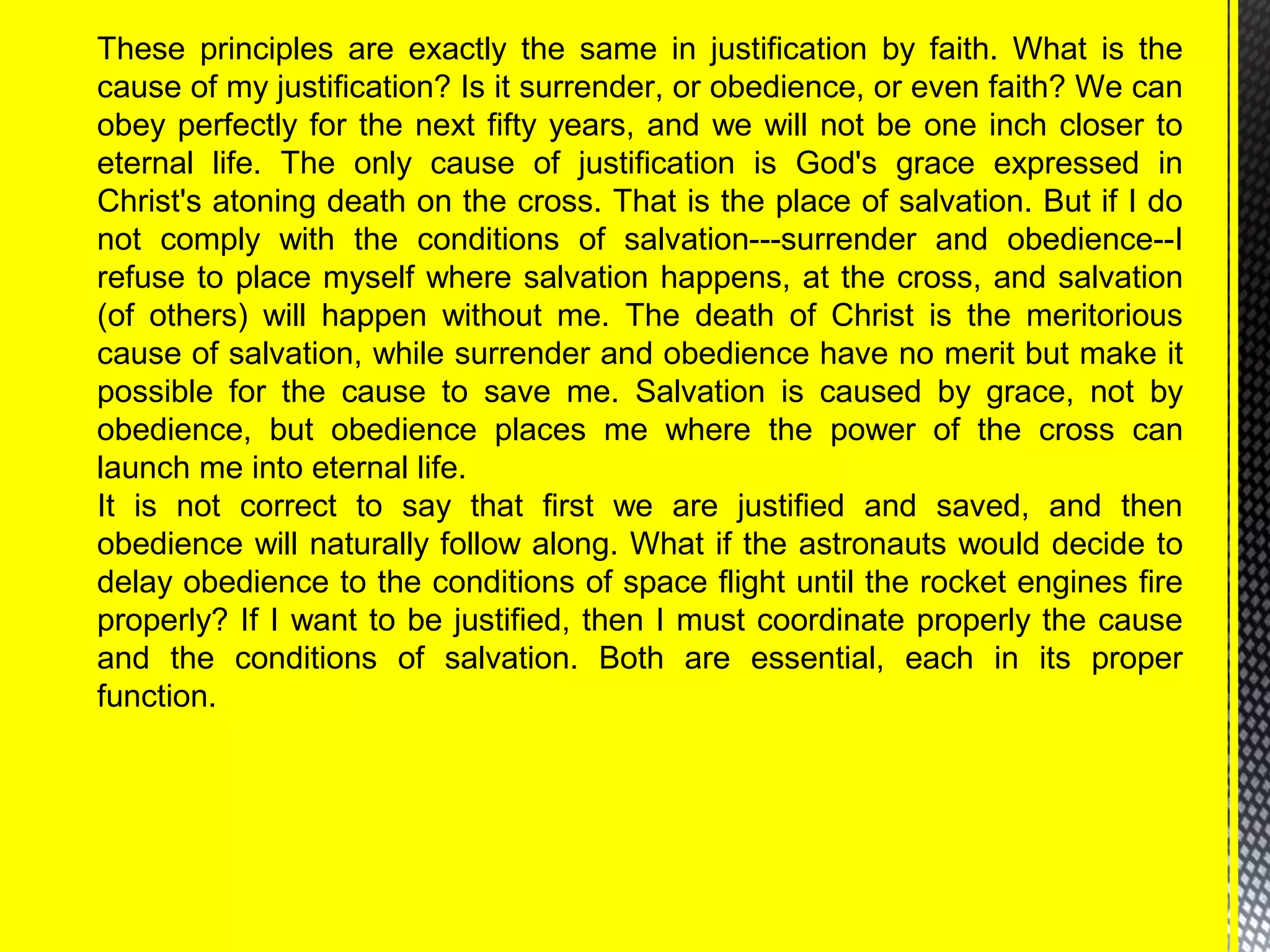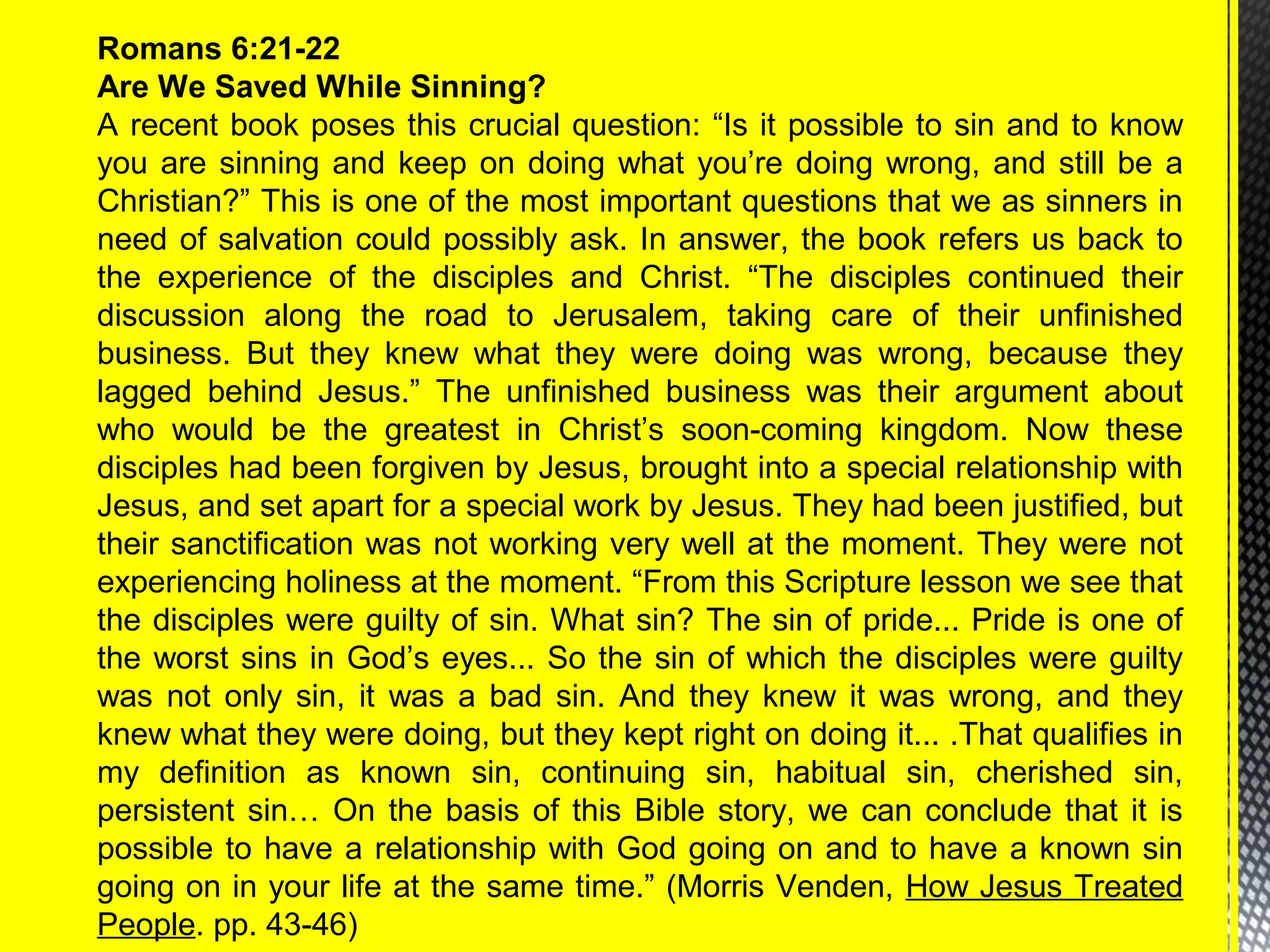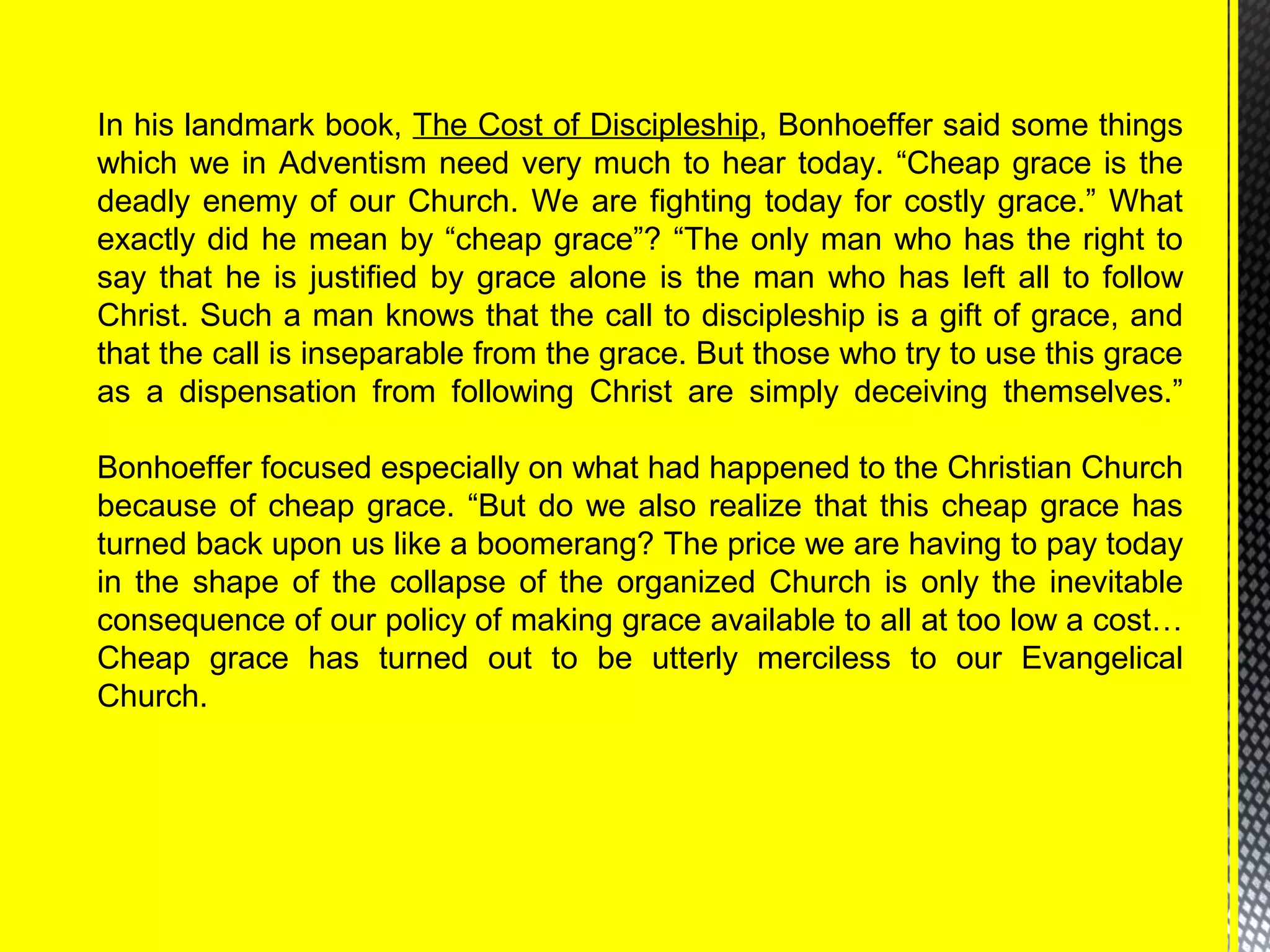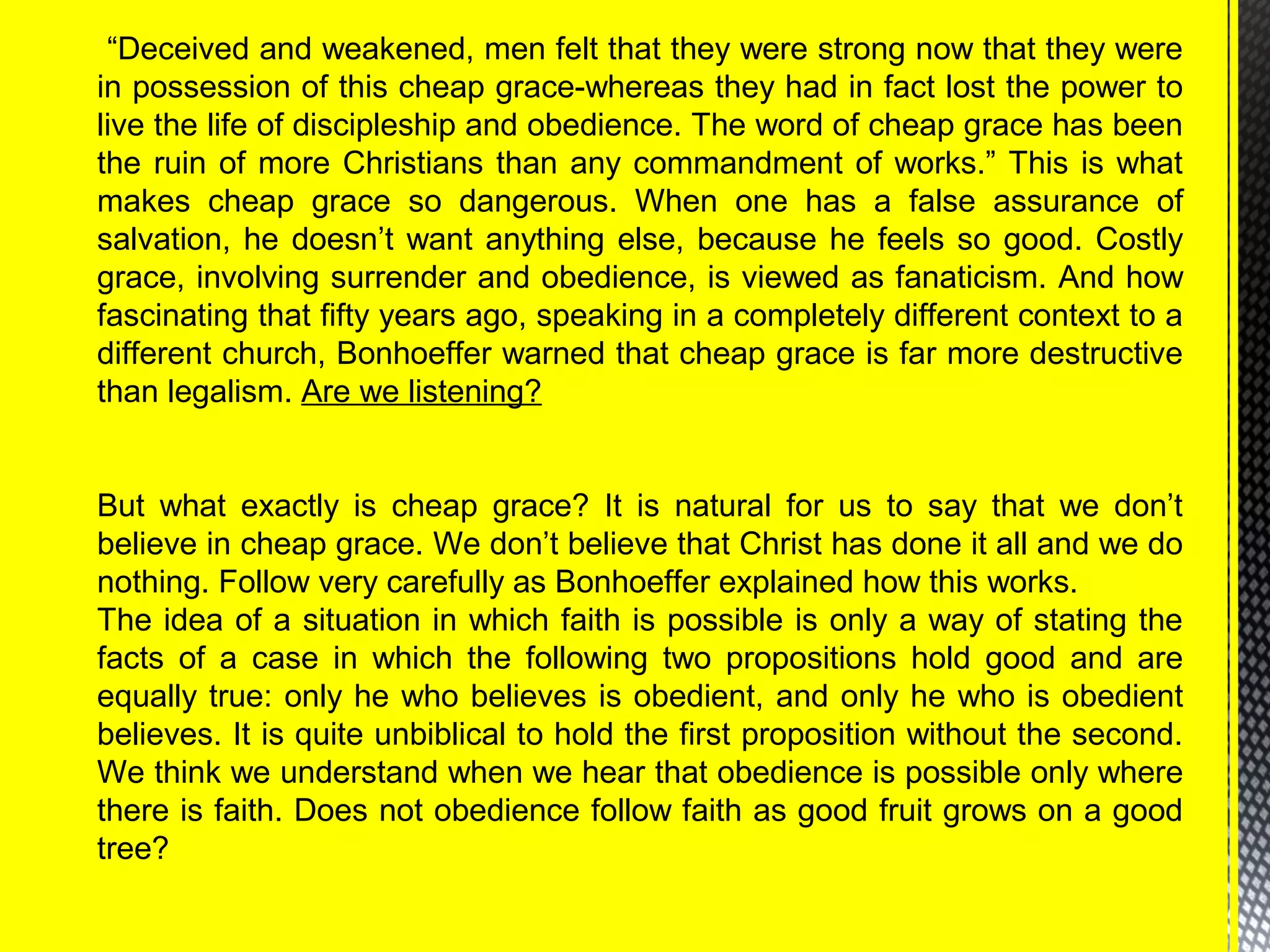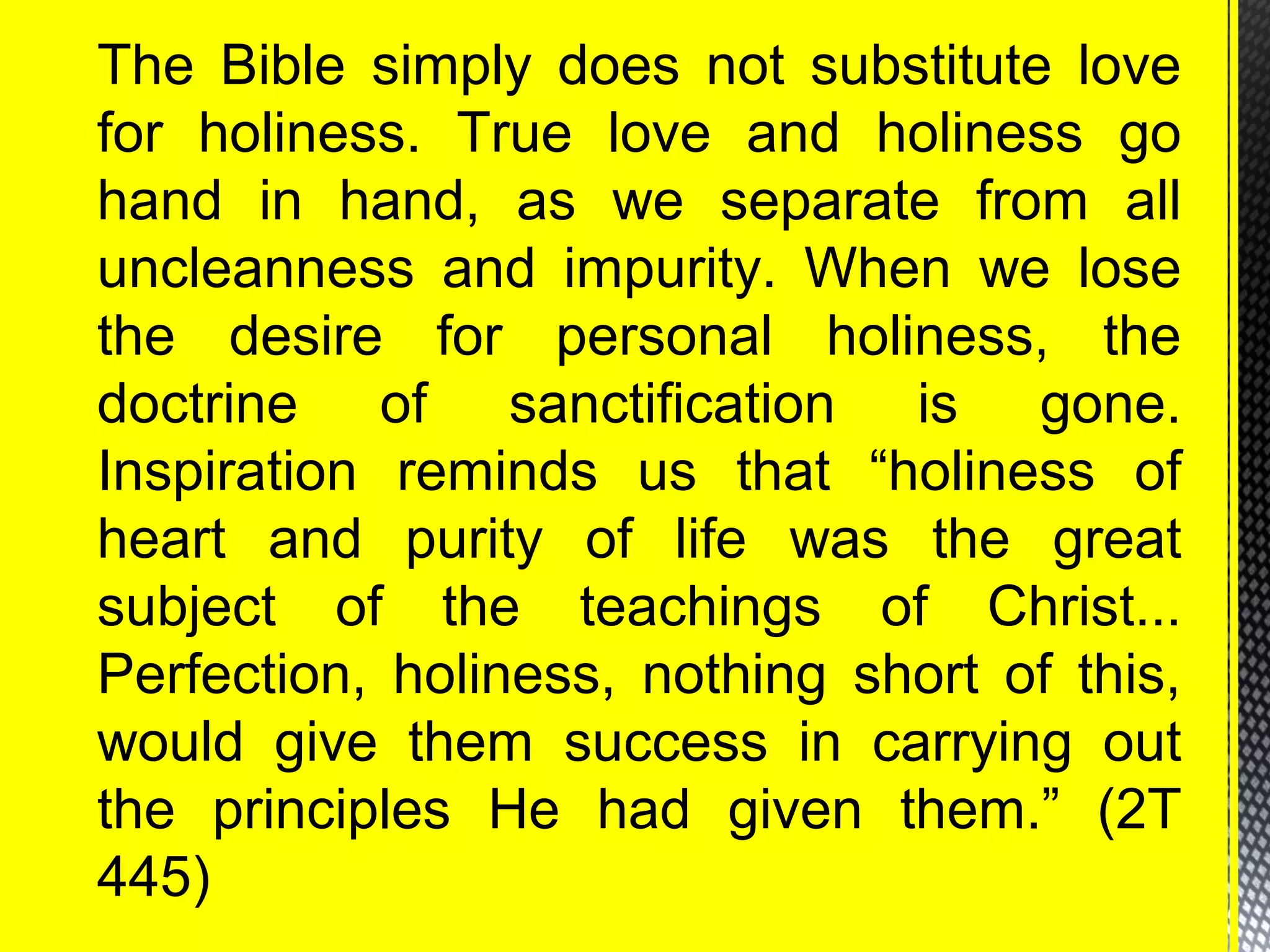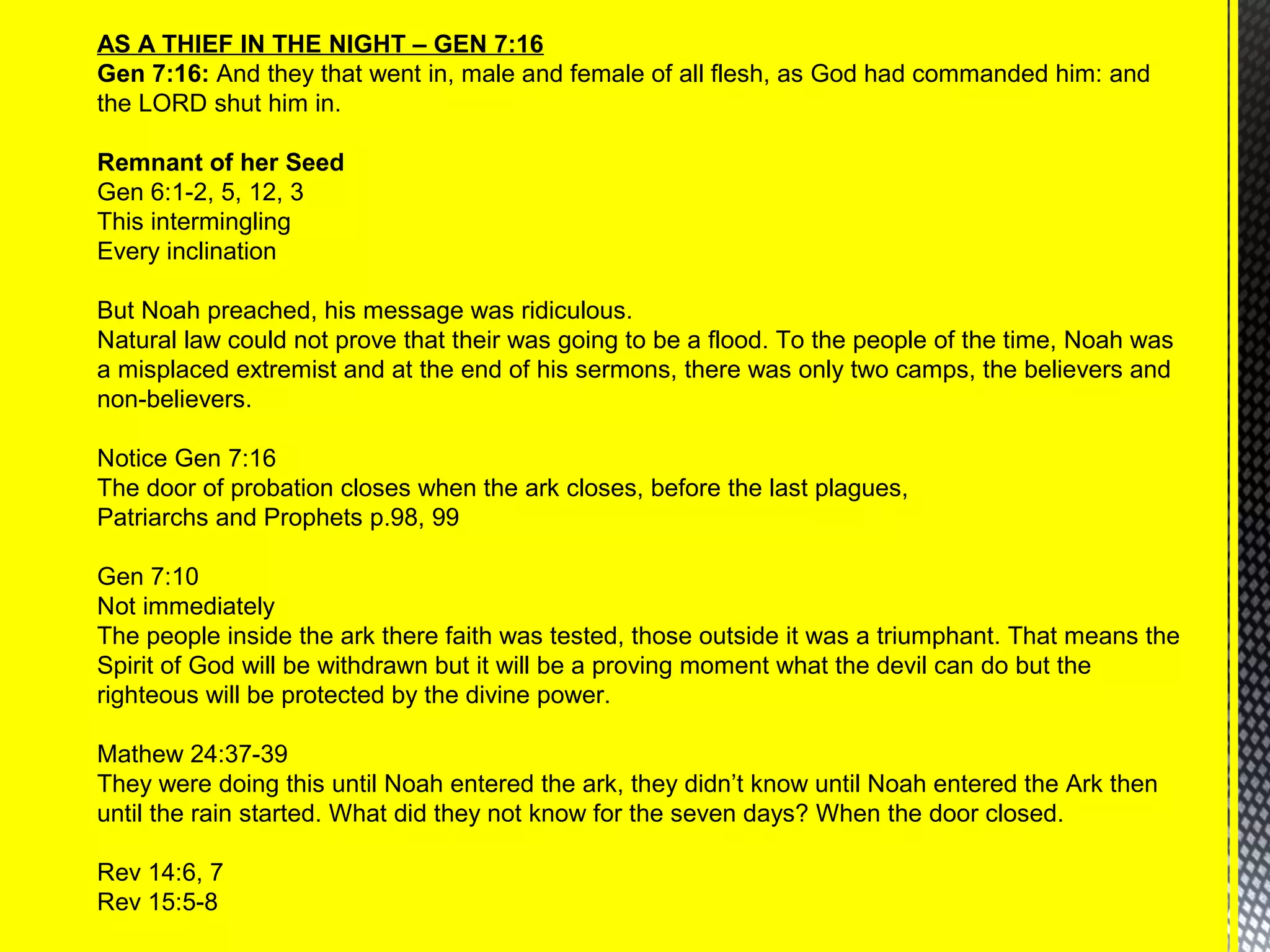This document discusses the steps of salvation and the role of repentance. It argues that repentance is a gift from God through Christ, not something a sinner can achieve on their own. While repentance must precede forgiveness, the sinner cannot bring themselves to repentance or make themselves worthy of God's grace. True repentance comes as the sinner responds to God's drawing and advances toward Christ in order to repent. The document asserts that no one can repent or make themselves worthy on their own, but that God constantly seeks to attract sinners to behold Christ, the Lamb of God, who takes away the sins of the world.
